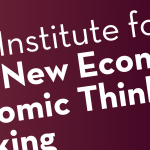Almost half of Americans’ average income has stagnated since 1980, notes a new Institute for New Economic Thinking-backed research paper by Thomas Piketty, Emmanuel Saez and Gabriel Zucman and government redistributive efforts through taxation have “offset only a small fraction of the increase in inequality”.
They conclude:
“Since 1980, growth in real incomes for the bottom 90% adults has been only about half of the national average on pre-tax basis and about two-thirds on a post-tax basis. Median pre-tax incomes have hardly grown since 1980. The reduction of the gender gap in earnings has played an important role in mitigating the increase in inequality among adults since the late 1960s but the gender gap is far from being closed especially at the upper earnings end. Tax progressivity at the top has declined since the 1960s but the generosity of transfers at the bottom has increased hereby mitigating the dramatic worsening in inequality.”
The New York Times has produced an engaging graphic representation and summary of the findings. The newspaper notes the paper’s warning that the diminished bargaining power of the U.S. labor force has had a deleterious affect on the incomes of the American working class. The Times writes:
“Because the labor income of the bottom 50 percent of Americans has weakened so drastically, Mr. Piketty, Mr. Saez and Mr. Zucman write, ‘there are clear limits to what redistributive policies can achieve.’
“They argue that future policy should focus more on raising the primary income of the American working class. Possibilities include improving education and job training, equalizing distribution of human and financial capital, and increasing labor bargaining power, combined with a return to steeply progressive taxation.”










